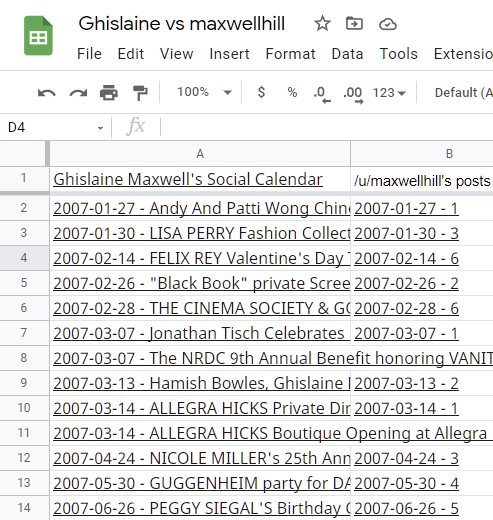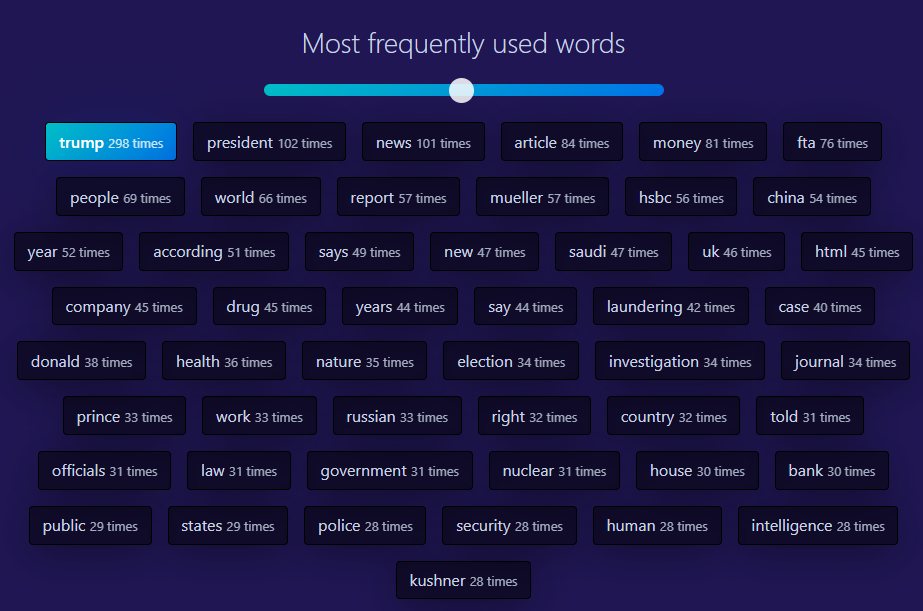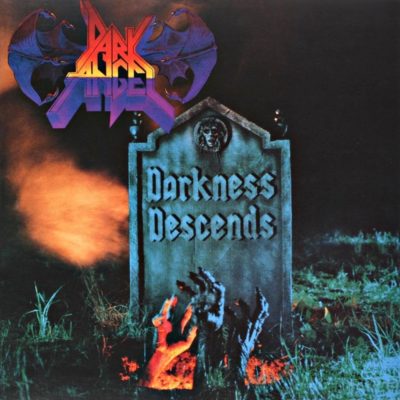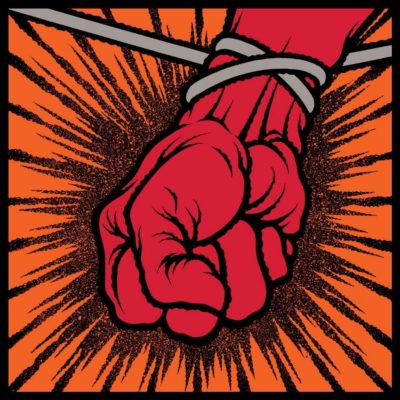Once, conspiracy theories were one-way traffic. David Icke wrote and his audience read, Alex Jones broadcasted and his audience listened.
Social media has changed this: most modern conspiracy theories are interactive affairs akin to ARGs, with the audience an active part of the process.[1]If anything, traffic now goes the reverse direction, with memes and ideas flowing upward from the followers to the gurus. I used to read the Twitter feeds of people like The Praying Medic and … Continue reading A generation of seniors spend their golden years decoding “Q drops” instead of spending time with their grandkids. Armies of wine moms “research” the child trafficking epidemic going on in their neighborhood.
This participatory Scooby Doo-like quality – a group of friends, collectively solving a mystery – is addicting, and keeps people hooked. Instead of reading a David Icke book, you’re writing a David Icke book. You’re fed narratives that your research work is important, that you’re toppling dark powers from your armchair. Social media also lets you make friends with fellow conspiracists, forging an affinity network that’s hard to escape.
This social factor is particularly important, and the reason I don’t like the popular conception of cults as groups of crazy people. Many people inside them are there for rational reasons. [2]Branwen, Gwern. “Notes on Brainwashing & ‘Cults’ – LessWrong.” Less Wrong, 2013, www.lesswrong.com/posts/TiG8cLkBRW4QgsfrR/notes-on-brainwashing-and-cults. It’s where their friends are. If they leave the cult behind, they leave their friends behind. Fear and loneliness are powerful motivators, and ones we’ve all got to watch out for – I can recall times when I did things due to peer pressure that I wouldn’t have done otherwise, and I’m sure you can too. The default behavior of any group of humans – be it the #SaveOurChildren movement or a mainline church or a lawn darts league – is to gradually slide toward conformism and groupthink. It takes no effort at all to become a cult. It’s actually the reverse: a group must actively expend effort to not become one.
So where’s the line? Where does a group of friends “break bad”, and become a delusional, reality-denying cult? Is there even such a point?
A useful litmus test is to watch their reaction to having a theory disconfirmed. Do they accept it with humbleness and equanimity (“wow, I guess I was wrong!”)? Or do they shut their eyes, and jam their fingers in their ears?
You might explore a question like:
Did Jeffrey Epstein’s girlfriend Ghislaine Maxwell – aka inmate number 02879-509, currently facing sex trafficking charges in Manhattan federal court – run a reddit account called /u/maxwellhill?
The theory’s details can found at the Daily Mail, and the Sun, and other places. It has existed for years, making the rounds whenever Ms Ghislaine’s perennial legal saga appears in the news.
/u/maxwellhill was a notorious power user, as powerful as a Redditor can become without actually being employed by the site. He was the user with eighth highest link karma, the first user to hit a million karma total, and the moderator for a slew of front-page subreddits (r/worldnews, r/politics, r/science, and r/technology). He had immense influence in shaping the site’s discussion, and his modding style was controversial.
(NB: I use “he” because /u/maxwellhill described himself in a 2010 Redditor of the Day profile as married 40 year old man. /u/hasharin, another reddit mod, has claimed that /u/maxwellhill lives in Malaysia, with the name being a reference to a local landmark.)
This all matters because the Epstein story involved a network. He was friends with the most wealthy and powerful people of the age – presidents, businesspeople, royalty. They flew on his plane and stayed at his island. How far did Epstein’s influence reach? Who knows what? Who did what? These questions are like maggots in Epstein’s corpse, wriggling years after his death, and if his girlfriend was esconced in Reddit’s inner circle and armed with a banhammer, then the 19th largest website lies inside the Epstein contamination zone too. A lot of Reddit’s main players – Alexis Ohanian, Steve Huffman, Ellen K Pao – become suspect, as do many past and current policy decisions.
If /u/maxwellhill was Ghislaine Maxwell, it would be “srs business”, as they used to say. Very well. Let’s study this serious business’s incorporation papers.
Believers cite the following evidence:
1. Ghislaine’s last name is Maxwell
2. Gaps in /u/maxwellhill’s post history line up with significant events in Ghislaine Maxwell’s life
2.a When Ghislaine Maxwell was arrested, /u/maxwellhill stopped posting.
3. A few biographical details kinda match.
4. /u/maxwellhill promotes child p*rn and wants to lower the age of consent
5. There isn’t a fifth one
You might find the above evidence persuasive. Or you might find it too thin to risk accusing an innocent of being party to child sex abuse. You might also recall (from your first day on the internet) that the person making the claim has to provide the evidence.[3]Conspiracists have the perfect dodge for this, though – they’re “just asking questions“. They’re not making a falsifiable claim. They’re just idly speculating that … Continue reading
Regardless, do these claims hold water?
1. Ghislaine’s last name is Maxwell
“Everything is connected” is a common conspiracist trope, but it’s startling to see it appear so bluntly. Two people have the same name, so they’re the same person, I guess?
“Maxwell” is not a rare name; howmanyofme.com suggests there are 81,736 Maxwells in the United States. The number worldwide might run into the hundreds of thousands. My father’s middle name is Maxwell.
It’s not believable that Ghislaine Maxwell (faking an elaborate identity as a married Malaysian man) would commit such an elementary error as using her real name. Did she want to hide her identity, or not? If so, why not pick a fake name? If not, why invent fake biographical details?
I put this to a believer on Twitter, and he replied:
Lots of people have weak information security practices. Trying to throw people of your scent by changing a few details is a common tactic, and not an unreasonable one for someone who wasn’t (at that time) particularly high-profile.
Is creating a stealth account under your real name a “weak information security practice”? I’d call it the most obviously self-defeating thing you could possibly do. This is as plausible as a Michelin-starred chef performing the “weak culinary practice” of taking a shit in the cordon bleu sauce.
(As a side note, it’s claimed that “hill” is a reference to Ghislaine’s father, whose birthname is Ján Ludvík Hyman Binyamin Hoch. Hoch is supposedly German for hill. But the correct word for that is hügel; hoch just means tall or high.)
2. Gaps in /u/maxwellhill’s post history line up with significant events in Ghislaine Maxwell’s life
Question for believers: have you investigated this for yourself? Or were you told it by someone else and assumed it was true?
Here’s the argument in more detail.
The usage of the account lines up to Ghislaine’s public activities with an almost spooky accuracy. The rare instances where the account logged off the site for more than a day at a time align with big events in Maxwell’s life, including the wake of Ghislaine’s mother’s death. They were also MIA during the much-discussed Kleiner Perkins party where, funnily enough, former Reddit CEO Ellen K. Pao recently claimed she saw her in attendance. This lines up with u/MaxwellHill’s own statement in an interview the user gave to Gizmodo during this period, saying “I am also busy with a potential business venture that is taking a large part of my time, but I try to squeeze in the odd link when I have the time…” What better place to do business than at a party for Silicon Valley VCs?
So…two events. The Kleiner Perkins party, and the death of her mother. But they line up with almost spooky accuracy!
This user has an interesting definition of a “big event”. Does attending a party count? Ghislaine Maxwell was a socialite who attended dozens of parties a year. Note that the Kleiner Perkins party occurred in 2011, at which point Ellen K Pao worked at an investment firm (she wouldn’t become Reddit’s interim CEO for another three years.)
Regardless, we have a testable hypothesis:
“Whenever Ghislaine Maxwell attends a party or an event, /u/maxwellhill goes silent.”
Here’s /u/maxwellhill’s comment archives. Tagged Getty Images photos allow us to partially reconstruct Ghislaine Maxwell’s public appearances. Let’s match them up and see what we find.
(Click the below image to open the file in Google Sheets. Most original data by /u/f_k_a_g_n on Reddit, with formatting and corrections by me)
No clear pattern emerges from the tea leaves. /u/maxwellhill posts 30, 37, and 39 times on dates coinciding with Ghislaine Maxwell events. He posts zero times on a date (2015-01-05) when Ghislaine was apparently just hanging around her Manhattan townhouse.
It’s hard to see why attending a party would mean you can’t post on Reddit for 24 hours. Don’t parties only occupy part of the day? Doesn’t even the busiest socialite have moments of free time (when travelling in a plane or limo, for example?) Aren’t most people constantly on their phones at parties anyway? Wouldn’t a rich person hire a PA to grind out links even on days when they were busy, or use a tool like Buffer to queue up posts in advance?
Nevertheless, this is the theory the conspiracists have provided. If you think it’s stupid, blame them, not me. Either way, it doesn’t survive contact with reality.
3. A few biographical details kinda match
/u/maxwellhill says he was born in December, just like Ghislaine Maxwell. This is an amazing coincidence: very few people are born in December. Probably less than nine or ten, total.
The theory is internally inconsistent as always: if Ghislaine was going undercover (fake age, fake sex, fake place of residence, fake marital status, etc), we’d expect her to provide a fake birth month, not a real one.
Ghislaine had an interest in environmentalism, founding the NPO and possible tax scam The TerraMar Project. /u/maxwellhill was also interested in this – /r/environment was one of his most frequent haunts.
But you can’t focus on this similarity and ignore the ways their interests differ. /u/maxwellhill mostly posted about US politics, from the vapid center-left “Orange Man Bad!” perspective that constitutes Reddit’s background radation. (click to enlarge).
Ghislaine Maxwell is on record – literally – as claiming to be Donald Trump’s friend. “Maxwell bragged that she was friends with “lots of famous people” like Prince Andrew and former President Donald Trump, Kate said, according to reporters in the courtroom, corroborating last week’s testimony from an alleged victim who said she encountered the two men while being trafficked by Maxwell and Epstein as a teenager.” They’ve been photographed together numerous times.
But we’re supposed to ignore this. When Ghislaine’s interests match /u/maxwellhill’s, it means something. When they don’t match, it means nothing (either that or it still means something – /u/maxwellhill is trashing Trump as a deliberate disinformation strategy. Dig deeper! We’re through the looking glass here!) This is classic conspiratorial thinking: we’re supposed to remember the hits and forget the misses.
Don’t go to a casino if you’re persuaded by stuff like this. You’ll leave wearing a barrel.
3a. When Ghislaine Maxwell was arrested, /u/maxwellhill stopped posting
This is the big one. The entire reason the theory exists. On 28th of June, 2020, /u/maxwellhill posts publically for the last time. Ironically, he’s promoting a conspiracy theory himself.[4]RussiaGate
On the 2nd of July, police raid Ghislaine Maxwell’s New Hampshire estate and place her under arrest. /u/maxwellhill is never heard from again. After posting dozens of times a week for over fifteen years, he’s gone. No goodbye post. No “I’ve gotten bored of Reddit and I’m taking a break” explanation. Just silence.
If this was true, it would be the strongest piece of evidence so far.
But it’s not.
I’m sorry to tell you this, but /u/maxwellhill did post after the 2nd of July. Just not in public. He continued to perform moderator duties, interact with staff members, and answer private messages. Here’s a conversation between /u/hasharin and /u/maxwellhill that happened on the 9th.

Additionally, here’s evidence that /u/maxwellhill made a post inside a private subreddit, nine days after the “Tr45son” one.

This seems pretty bad for the theory. With Ghislaine Maxwell in jail awaiting charges, /u/maxwellhill is casually swapping PMs with reddit moderators and spitballing around policy ideas. How could they be the same person?
“Ghislaine Maxwell is a wealthy woman, bankrolling high-powered attorneys. She could easily contrive to have unmonitored internet access for a few moments.”
Maybe. She has odd priorities if this is how she spends them. I’m imagining a scene from an upcoming biopic.
INTERIOR – METROPOLITAN DETENTION CENTER – NIGHT.
GHISLAINE is wringing her hands in a dimly lit JAIL CELL, begging her LAWYER to let her use his phone.
GHISLAINE: “Please! It’s urgent! I…I…I have to moderate /r/technology! People are spamming it with dickbutt! Fucking dickbutt! /u/hasharin needs me!”
She sobs uncontrollably.
(I’m sure /u/hasharin regrets sharing these messages, based on how his Twitter replies are full people accusing him of faking them and being part of the Ghislaine/Reddit pedo ring. No good deed goes unpunished.)
I’ve heard it argued that maybe Ghislaine Maxwell delegated the account to an assistant. This defense destroys the original argument: if /u/maxwellhill was not controlled by Ghislaine Maxwell, what does her disappearance prove? And why wouldn’t this supposed assistant at least post a few messages in public to completely discredit the theory?
None of it adds up. Unless you consider the most boring and obvious answer. Then all of it adds up.
So where did /u/maxwellhill go? I don’t know. It’s possible that thousands of PMs from insane people calling him a pedo have soured him on Reddit. There’s no point in him posting publically again. Anything he says now will be slammed with downvotes, because half the internet is convinced he’s secretly Jeffrey Epstein’s girlfriend and will likely remain convinced regardless of the evidence.
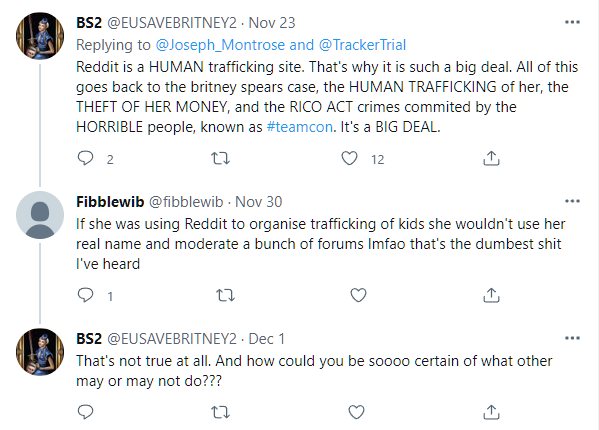
The conspiracy theory is like their toy. They’ve invested a lot of time into it, and they don’t want it taken away.
4. /u/maxwellhill promotes child p*rn and wants to lower the age of consent
No. This is a lie, then another lie.
The venality of the internet still surprises me. /u/maxwellhill was a news junkie who posted thousands of stories. It’s inevitable that some would involve child sex abuse. To quote one or two out of context and claim they mean he approves of child abuse isn’t even dishonest in a clever way. It’s just embarrassing, like scrawling “/u/maxwellhill is a poopie head!” on a toilet wall.
Specific claims:
“[he] posts articles about why we should legalize child exploitation material” – this is an /r/worldnews submission about a noteworthy figure who has made a controversial statement. There’s no indication that /u/maxwellhill agrees with or approves of Mr Falkvinge’s statement.
“[he] gripes about over-zealous child protection laws” – nice well-poisoning by calling it “griping”, as if it’s unreasonable to not want innocent people accused of crimes. I hope people continue to “gripe” about that, as it’s a real problem that happens all the time.
[…] within hours, 111,000 people had seen the post. Farhad said the massive backlash he received saw him sacked from his job, his house spraypainted, a brick thrown through his window, and attempts made to petrol bomb his home, adding people also threatened his girlfriend and his pet.
[…] Dure — who runs an online group called TRAP which uses sting operations to catch pedophiles trying to meet with underage children — was later arrested and admitted to falsely accusing Farhad of grooming teenagers at the Southampton Magistrates’ Court in August. He was jailed for 15 weeks by the presiding Judge Lorraine Morgan.
The message explicitly condemns pedophilia, by the way.
“Discusses age of consent in various countries here and here“ – wording as strategic as a Spassky chess move. This user doesn’t actually quote what /u/maxwellhill said about the age of consent, just that he was “discussing” it. He knows you’ll imagine the worst. He knows you won’t click the link.
I have, though. The first link is a selectively screencapped thread that removes /u/maxwellhill’s first reply, where he expresses shock that the age of consent is so low in certain states. “13 years old?! The mind boggles.” In the second link, he hopes that the Italian police will prosecute someone for pedophilia. In neither link does /u/maxwellhill endorse pedophilia – in fact, he’s doing the opposite.
Here’s a question for believers: do you think Ghislaine cared what the age of consent was?
Seriously, are you smoking crack? Do you think Ghislaine and Epstein needed anyone’s permission to abuse children?
Neither he nor she gave one fuck about the law. The did whatever they wanted to whoever they wanted, counting on their wealth, power, and societal connections to shield them from consequences. And given that it it took decades (and enough victims to fill three entire schoolbuses) before some semblence of justice was served, were they really wrong?
Creepy people with strong opinions on age of consent laws exist. Neither Epstein nor Ghislaine fit that profile. They weren’t standing on a soapbox advancing a pro-ephebophilia agenda – millionaires have more effective ways to do that than to thanklessly moderate /r/technology for ten years. I doubt they thought about the morality of their actions at all, any more than Ted Bundy arrived at a morally calculated decision to murder hitchhikers. The only questions he asked were “will I enjoy it?” and “will I get caught?” Bundy’s relationship with right and wrong was the relationship a blind man has with the colors red and blue. An intellectual, unfeeling one. Bundy, like Epstein, was a sociopath.
(Irresponsible speculation hour: although allegations of sexual abuse exist have been directed specifically at Ghislaine, I don’t believe she was a pedophile. She seems to be a completely amoral individual who went along with her boyfriends’ wishes to gain access to his money and network. The details didn’t matter – if Epstein’s kick had involved sewing cute little bobble hats for pugs, she would have helped him do that instead.)
There is a manic, irrational tone to the way people talk about child abuse online. Something about the topic just incinerates peoples’ brains. If patriotism is the last refuge of the vicious, “think of the children!” is one of the first, though it’s interesting to contrast the fanatic posturing above (“linking to an article about pedophilia proves you’re a pedophile!”) with the fact that it took so long to bring a real pedophile to justice.
Remember the #SaveOurChildren types I linked at the start? How many actual children have they rescued? How many actual pedophiles have they caught? It’s probably a number bounded tightly around zero. Their activities consist of waving signs and accusing celebrities. The police want nothing to do with them. Everything they do is pure theater. They’re not actually helping the problem.
It’s good that witches didn’t exist in the Middle Ages. The witchfinders probably wouldn’t have caught any of them.
Other Observations
I’m >95% sure that /u/maxwellhill is not Ghislaine Maxwell.
If she is, then large numbers of people (the /r/worldnews mod team, for a start) are lying and/or forging evidence in the most incompetent way possible. It would also require Ghislaine to be both insanely cautious and stupid at the same time, the equivalent of someone locking their front door with three deadbolts and leaving the house keys on the doormat.
…And all of this is necessary to merely overturn the negative evidence, bringing us back to square one. A positive case still hasn’t been built. We don’t have much of a reason to think that Ghislaine controlled this particular Reddit account.
Naively, the chance of someone excelling in two different fields (being both high-profile socialite and having the 8th highest link karma on Reddit) seems small, particularly when there’s no way to parlay success in one to the other. It’d be like if the world’s fastest touch-typist was also a world-champion swimmer. Possible. Certainy not probable.
What about stylometry? Can that shed light on the matter? Are there stylistic parallels between /u/maxwellhill’s comments and Ghislaine’s writing?
Here are four things she’s written:
When the Oceans Failed[5]“It’s December 2031, and my hand is tingling with an alert from Apple’s latest wearable technology…” – if God is just, the only wearable technology tingling in 2031 will … Continue reading
New Year, Old Challenges… For Climate Change
The New ‘Bait and Switch’ on Seafood
Tide Is Turning for Ocean Conservation
It’s not enough. Stylometry’s real-world successes all involve either highly distinctive writing styles (linguists catching Ted Kaczynski), or AI-based tools crunching through giant corpuses of writing (Stylo exposing Elena Ferrante as a pen name for Domenico Starnone). Without those things, you’re basically just performing statistical astrology, building pearls around meaningless grit and dust.
Little things stand out. For example. Ghislaine uses “—” (Unicode U+2014) for her em-dashes, while /u/maxwellhill prefers the minus sign “-” (Unicode U+2212), as you can see here.
This doesn’t prove anything; Ghislaine could have written articles on one device and Reddit posts on another, or the articles could be ghostwritten, or Medium/HuffPo’s CMS might automatically convert minus signs to em-dashes, or [insert a half-dozen other explanations].
A more profitable vein to mine would be to figure out /u/maxwellhill’s timezone.
You’d scrape the timestamps off his posts using Reddit API, plot them on a 24-hour chart, and see where the humps are. Do they plausibly coincide with the wake/sleep schedule of a person living at GMT-5, Eastern Standard Time? Malaysia is 13 hours ahead of NY, so we should be able to geographically “place” the account with some accuracy.
But it doesn’t matter and isn’t worth the effort. Nobody convinced by the theory would be unconvinced by this. They’d have some locally plausible but globally ludicrous explanation, like Ghislaine deliberately posting her Reddit messages at weird times to throw off pursuit. All while posting under her real name.
Many people are an emotional tail wagging a rational dog, and will believe because they want to believe, ignoring all evidence. They see disconfirmation as a test of faith to overcome, like an athlete powering through a tough spot on a marathon. In the immortal words of Steven Kaas, “You are not the king of your brain. You are the creepy guy standing next to the king going “a most judicious choice, sire”.
Here’s the boring truth.
/u/maxwellhill goes away on a holiday. He returns to find six thousand PMs screeching at him and calling him every name under the sun. He’s already very busy, and this is the final straw, killing his desire to contribute to Reddit. There’s no way to win, no way to prove he’s innocent. Anything he says will be spun and misrepresented as still more proof of a conspiracy.
So he does a little more moderation work behind the scenes, ties up loose ends, and then flushes this Reddit crapshake for good. A wise decision. If only we all were that strong.
References
| ↑1 | If anything, traffic now goes the reverse direction, with memes and ideas flowing upward from the followers to the gurus. I used to read the Twitter feeds of people like The Praying Medic and AStormIsUponUs. The desperation was palpable. They clearly weren’t in control. They were just blindly pouncing on whatever topic was gaining clicks and traffic that day, usually abandoning last week’s talking points. |
|---|---|
| ↑2 | Branwen, Gwern. “Notes on Brainwashing & ‘Cults’ – LessWrong.” Less Wrong, 2013, www.lesswrong.com/posts/TiG8cLkBRW4QgsfrR/notes-on-brainwashing-and-cults. |
| ↑3 | Conspiracists have the perfect dodge for this, though – they’re “just asking questions“. They’re not making a falsifiable claim. They’re just idly speculating that /u/maxwellhill is Ghislaine Maxwell, that’s all. Incidentally, here’s a post with 9.9k upvotes in /r/conspiracy: “Reddit banning all users commenting on Maxwellhill threads. Closing threads of this theory that is now blowing up. This should let you know that there is basis behind this theory. Reddit has been shaped as a pedo-apologist website for a decade. Mossad/CIA infiltration. It all makes sense now.” It’s weird how a lot of “just asking questions” people act like they already know the answers. |
| ↑4 | RussiaGate |
| ↑5 | “It’s December 2031, and my hand is tingling with an alert from Apple’s latest wearable technology…” – if God is just, the only wearable technology tingling in 2031 will be around her ankle. |


